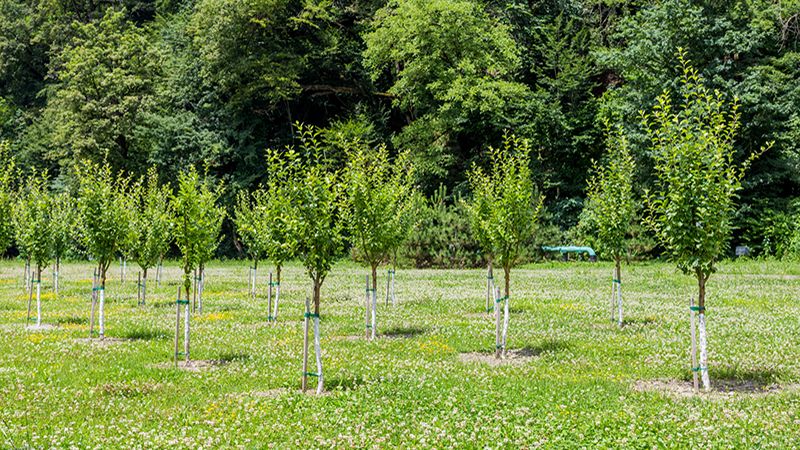Marking one year since the launch of its set of recommendations, the Taskforce on Nature-related Financial Disclosures (TNFD) has called on companies and financial institutions across sectors and geographies to get started with nature-related reporting and align themselves with global policy goals ahead of the UN Biodiversity Conference (COP16) in Cali, Colombia next month.
The TNFD published its disclosure recommendations and guidance in September 2023, encouraging businesses and financial institutions to assess, report and act on their nature-related dependencies, impacts, risks and opportunities. The recommendations now operationalise Target 15 of the Global Biodiversity Framework (GBF), agreed to by over 190 governments at COP15 in Montreal in 2022.
As of today, over 440 organisations have commenced their reporting of nature-related issues, representing over $6trn in market capitalisation among publicly listed companies, and over $16trn in assets under management (AUM) among asset owners and managers.
The goal of the Taskforce now, they said, was to support a shift in global financial flows away from nature-negative outcomes and toward nature-positive outcomes, aligned with the GBF.
David Craig, co-chair of the TNFD, said: “Nature is now firmly and widely recognised as a strategic risk management issue for business and finance – no longer just a corporate social responsibility one. This shift in mindset from the climate COP in Glasgow in 2021 to today is significant. Investors and corporate leaders are increasingly appreciative of the reality that the resilience of their cashflows depends on the resilience of nature – the low of inputs into their business models from soil nutrients for our food system to the water relied on to manufacture semiconductor chips. Nature resilience is everyone’s business.”
‘A formidable achievement’
Looking ahead, the TNFD said it would look to expand and build upon successful partnerships with the International Sustainability Standards Board (ISSB), Global Reporting Initiative (GRI) and other organisations, aiming to set cross-sector and sector-specific indicators and metrics. This extends to participating organisations continuing to support research projects on biodiversity, ecosystems and ecosystem services.
Additionally, a second tranche of sector guidance is set to be released in Q1 2025, after the launch of the first round of guidance in June this year. Other ongoing technical work includes research on financed nature-related impacts, measurement of nature-related issues in the ocean realm and the assessment of nature-related risks by corporates and financial institutions.
Elsewhere, in an attempt to address the challenge of nature-related data, the TNFD said it has assembled a global network of experts across the nature data value chain to develop a blueprint for a Nature-related Data Public Facility (NDPF). The Taskforce intends to release the blueprint and development roadmap for an NDPF at the World Biodiversity Summit, which coincides with COP16.
The next cohort of TNFD adopters will also be announced at COP16 in Cali, Colombia in October 2024.
Robeco was one of the early adopters of the TNFD recommendations. Lucian Peppelenbos, climate & biodiversity strategist at Robeco, commented: “TNFD has introduced a shared language and set of common metrics to capture the complex topic of nature loss across all sectors of the economy. That’s a formidable achievement. Going forward, it’s all about implementation. In the next years, we hope to see good disclosure practices established across all priority sectors, followed by massive uptake. That will boost our ability as investors to assess companies in the transition to a more nature-positive economy.”
Fidelity International were also an early adopter. Charlotte Apps, sustainable investing analyst at Fidelity International, added: “One year on from the finalisation of the TNFD disclosure recommendations and guidance, it has been promising to see the support the framework has garnered by virtue of the more than 400 organisations who have voluntarily committed to adopting the recommendations. As investors we hope that as more organisations join this cohort of early adopters, it will enable us to better assess and manage nature-related risks across our portfolios, triggering investee companies to assess their interactions with nature and disclose the actions they are taking to manage these.
“To further accelerate action, the TNFD framework and its recommendations should serve as an anchor to inform regional and global disclosure standards, such as the ISSB and continued development of Europe’s CSRD. Given that nature-related impacts and dependencies are a function of location and the economic activity taking place, sectoral pathways are needed to complement the TNFD framework to ensure a globally coordinated and consistent response across sectors, that also supports the net-zero transition. We look forward to seeing how nature disclosures and sectoral pathways are integrated into countries’ NBSAPs at COP16.”








